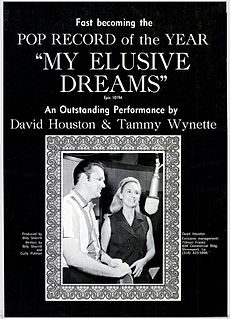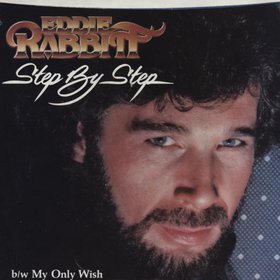
"I Will Always Love You" is a song originally written and recorded in 1973 by American singer-songwriter Dolly Parton. Her country version of the track was released in 1974 as a single and was written as a farewell to her one-time partner and mentor of seven years, Porter Wagoner, following Parton's decision to pursue a solo career.

"Saving All My Love for You" is a song written by Michael Masser and Gerry Goffin with arrangement by Gene Page. It was originally a minor hit for Marilyn McCoo and Billy Davis Jr. in 1978 on their album Marilyn & Billy. A cover of the song was done by American singer Whitney Houston, for her debut, self-titled album, which was released on February 14, 1985, by Arista Records. The song was the second single from the album in the United States and third worldwide.

"Where Do Broken Hearts Go" is the fourth single from Whitney Houston's second album, Whitney. The ballad was released on February 25, 1988. The song was written by Frank Wildhorn and Chuck Jackson and produced by Narada Michael Walden. Due to Wildhorn's previous working relationship with Arista Records CEO Clive Davis, he had been approached about potentially writing for Houston. He contacted Jackson, who came up with the title, after which Wildhorn completed the music and lyrics for the song. Smokey Robinson originally wanted to record the song; however, Wildhorn and Jackson held the song for Houston.

"Perfect" is the debut single by Fairground Attraction, released on 28 March 1988. It was written and produced by Mark Nevin.

"I'm Every Woman" is the debut solo single by American singer Chaka Khan from her debut solo studio album Chaka (1978). It was Khan's first hit outside her recordings with the funk band Rufus. "I'm Every Woman" was produced by Arif Mardin and written by the successful songwriting team Nickolas Ashford and Valerie Simpson. The single established Chaka's career outside the group Rufus, whom she would leave after their eighth studio album Masterjam was released in late 1979.
"Almost Persuaded" is a song written by Glenn Sutton and Epic Records producer Billy Sherrill and first recorded by David Houston in 1966. It is not to be confused with the Christian hymn of the same name.

"My Elusive Dreams" is a country music song written by Billy Sherrill and Curly Putman, which has been recorded by several artists. The best-known version was recorded as a duet by David Houston and Tammy Wynette, and was a No. 1 country hit in October 1967; the song also peaked at No. 89 on the Billboard Hot 100. Wynette recorded a second duet version of My Elusive Dreams in 1973 with George Jones; this version was included on the Let's Build a World Together album.
"Love's Gonna Live Here" is a 1963 single by Buck Owens, who also wrote the song. The single would be Buck Owens' second number one on the country charts spending sixteen weeks at the top spot and a total of thirty weeks on the chart.
"Already it's Heaven" is a 1968 single written by Billy Sherrill and Glenn Sutton and recorded by David Houston. The single was David Houston's sixteenth release on the country charts. "Already It's Heaven" spent one week at the top of the country charts and total of fifteen weeks on the chart.
"You Mean the World to Me" is a 1967 single by David Houston. "You Mean the World to Me" was Houston's third number one on the country charts as a solo artist. The single spent two weeks at number one and a total of sixteen weeks on the chart.
"Have a Little Faith" is a 1968 song written by Billy Sherrill and Glenn Sutton and recorded by David Houston. "Have a Little Faith" was David Houston's fourth number one single on the country charts. The single stayed at number one for a single week and spent a total of thirteen weeks on the chart. It also crossed to #18 on Billboard's "Easy Listening" survey.
"I Walk Alone" is a song written by Herbert Wilson, and recorded by American country music artist Marty Robbins. It was released in August 1968 as the first single and title track from the album I Walk Alone. It was Robbins' thirteenth number one on the U.S. country singles chart. The single spent two weeks at number one and a total of fifteen weeks on the chart.
"Gone Too Far" is a song co-written and recorded by American country music artist Eddie Rabbitt. It was released in February 1980 as the third single from the album Loveline. "Gone Too Far" was Eddie Rabbitt's sixth number one on the country chart. The single stayed at number one for a single week and spent a total of ten weeks on the country chart. It was written by Rabbitt, Even Stevens and David Malloy.

"Step by Step" is a crossover song co-written and recorded by American country music artist Eddie Rabbitt. It was released on July 1981 as the first single and title track from the album Step by Step. "Step by Step" was Rabbitt's ninth number one single on the country chart. The single stayed at number one for one week and spent a total of 11 weeks on the country chart. It was written by Rabbitt, Even Stevens and David Malloy.
"You Can't Run from Love" is a song co-written and recorded by American country music artist Eddie Rabbitt. It was released in March 1983 as the second single from the album Radio Romance. "You Can't Run from Love" was the follow-up to Rabbitt's duet with Crystal Gayle, "You and I". The song was Rabbitt's twelfth number one single on the country chart. The single went to number one for one week and spent a total of thirteen weeks on the country chart. "You Can't Run From Love" peaked at number fifty-five on the Hot 100 and number two on the Hot Adult Contemporary chart. It was written by Rabbitt, Even Stevens and David Malloy.

"Redneck Girl" is a song written by David Bellamy, and recorded by American country music duo The Bellamy Brothers. It was released in September 1982 as the first single from the album Strong Weakness. "Redneck Girl" was the sixth number one country hit for The Bellamy Brothers. The single went to number one for one week and spent a total of twelve weeks on the country chart.
"Houston " is a song written by Larry Gatlin and recorded by American country music group Larry Gatlin & the Gatlin Brothers Band. It was released in September 1983 as the first single from the album Greatest Hits Vol. II then included to first track of Not Guilty (1984). "Houston " was the group's third and last number one on the country chart. The single went to number one for two weeks and spent a total of fifteen weeks on the country chart.

"One, Two, I Love You" is a song written by Ed Hill and Bucky Jones, recorded by American country music singer Clay Walker. It was released in April 1997 as the second single from the album Rumor Has It.
"The Greatest Love of All" is a song written by Michael Masser, who composed the music, and Linda Creed, who wrote the lyrics. It was originally recorded in 1977 by George Benson, who made the song a substantial hit, peaking at number two on the US Hot R&B/Hip-Hop Songs chart that year, the first R&B chart top-ten hit for Arista Records. The song was written and recorded to be the main theme of the 1977 film The Greatest, a biopic of the boxer Muhammad Ali. Eight years after Benson's original recording, the song became even more well known for a version by Whitney Houston, whose 1985 cover eventually topped the charts, peaking at number one in the United States, Australia, Canada and on the US Hot R&B/Hip-Hop Songs in early 1986.









